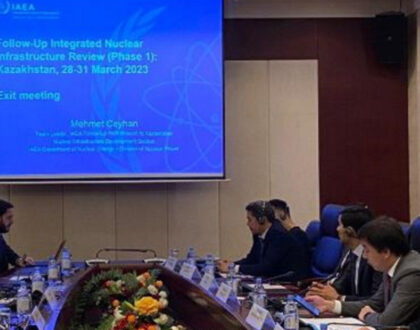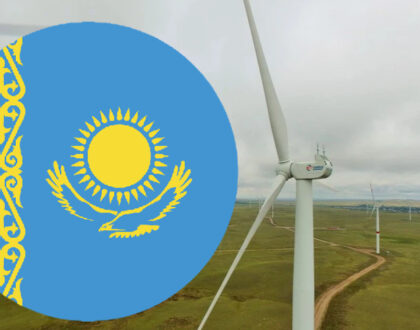The potential of nuclear power generation discussed in Kazakhstan

Kazakhstan, like many other countries around the world, is grappling with the question of whether or not to invest in nuclear power. While there is still some debate about the potential risks and benefits of nuclear energy, it is clear that the world is increasingly turning to nuclear power as a key source of electricity generation. In this article, we will explore the current state of the nuclear industry around the world, and the case for nuclear power in Kazakhstan.
According to recent data, there are over 450 nuclear power plants in operation in 32 countries around the world, with more than 50 under construction. The United States, China, France, Russia, South Korea, and Canada are the world leaders in nuclear power generation. The average lifespan of a nuclear power plant is 60 years, and these facilities generate around 10% of the world’s electricity.
Despite the widespread use of nuclear power, there is still a great deal of debate about its safety and environmental impact. Many people believe that nuclear power is dirty and dangerous and that it should be avoided at all costs. However, the reality is that nuclear power is a relatively clean and efficient source of energy, with far fewer emissions than fossil fuels. While there have been several high-profile nuclear accidents in the past, modern nuclear power plants are much safer and more reliable than their predecessors.
One of the key advantages of nuclear power is its reliability. Nuclear power plants can operate 24/7, providing a steady supply of electricity that is not affected by weather conditions or other external factors. This makes them an ideal source of baseload power, which is essential for maintaining a stable electrical grid.
In Kazakhstan, the debate about nuclear power has been ongoing for many years. Some people believe that nuclear power is necessary to meet the country’s growing energy needs, while others are concerned about the potential risks and environmental impacts of nuclear energy. However, the reality is that Kazakhstan is facing a serious energy crisis, and nuclear power may be the only viable solution.
According to experts, Kazakhstan is currently facing an energy deficit, with a shortage of large generating capacities. The population and industry are both growing rapidly, and there is a pressing need for additional sources of electricity. While renewable energy sources such as solar and wind power may be part of the solution, they are not yet advanced enough to provide a reliable source of baseload power.
Furthermore, Kazakhstan’s oil and gas companies are currently facing a challenging economic environment. Due to the low price of natural gas, it is not profitable for these companies to sell their gas to the Kazakh market. This means that much of the natural gas is being sold to other countries.
One potential solution to this problem is to build a nuclear power plant in the western region of Kazakhstan. This would provide a stable source of energy that could be used to power the region’s growing industries and population. In addition, a nuclear power plant could also help to release certain volumes of natural gas that could be sold to other countries or used to meet Kazakhstan’s energy needs.
Of course, there are still many questions that need to be answered before a nuclear power plant can be built in Kazakhstan. The government and relevant ministries must carefully consider the potential risks and benefits of nuclear power and must work with industry experts and international partners to ensure that the plant is safe and reliable. However, if these challenges can be overcome, a nuclear power plant could be an important part of Kazakhstan’s energy future.
In conclusion, nuclear power is a critical source of energy for many countries around the world, and it may be an essential part of Kazakhstan’s energy mix in the years to come. While there are still many challenges and debates surrounding nuclear power, it is clear that the world is continuing to rely on this form of energy to meet its growing energy demands. With advancements in technology and safety measures, nuclear power can be a clean and efficient energy source that helps reduce carbon emissions and mitigate climate change. However, it is important that decision-makers consider the potential risks and benefits of nuclear power and implement strict regulations to ensure its safe operation. Ultimately, the decision to pursue nuclear power must be based on careful consideration of all the factors involved and a commitment to responsible and sustainable energy development.




